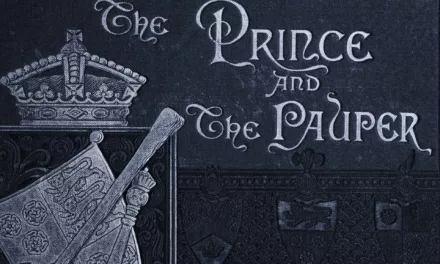
How do you reignite your writing spark?

“I have a bad habit of never finishing writing I start – I work hard on a story, make it to 3/4 of the way through, then lose passion for it and start something else. I know the key to overcoming this is discipline, and I’m trying very hard to make myself keep going with my current story that I like very much and spent so much time researching and outlining, but it’s a struggle every day to make my writing goal. Any advice for how to re-ignite writing spark or how to push through to the end?”
Remember when creative writing used to be fun? When you were a kid, you probably spun out stories and filled up entire journals without batting an eye. But now, you’ve lost your writing spark, and writing feels like a chore or like looking down past the edge of a precipice and feeling an inexplicable rush of vertigo. Or maybe you’ve just lost joy for your project.
What gives? We can lose our drive to write for a lot of reasons. It often indicates a growing maturity as an artist — you understand the craft better and your own (current) limitations better, and so you begin to feel overwhelmed in a way you didn’t before. It can also be that external anxieties are getting in the way or simply that you’ve lost interest in your current project.
Hope is not lost. Read on for some tips on reclaiming your writing spark.
Shift gears
Sometimes, all you need to reignite your writing spark is to engage your brain in a different way. If you’re struggling with your novel, take a break and try writing a poem or a piece of flash fiction. Or, you could try drawing sketches of your characters, a map of your story’s world, or some possible outfits for your climactic battle scene (it doesn’t have to be good. No one’s going to see it).
The trick is to stay creative but to approach your work from a different angle.
Change location
If you’ve been trying and failing to write at your desk, surrounded by crumpled up dreams drafts and last week’s candy wrappers, you may be suffering from an environment with stagnant energy. Try taking yourself on a writer’s date: go to a location that fits the tone of the project you’re working on (lux hotel lobby, seedy theatre bar, the wilds of a nearby park), and see if that gets your creative wheels turning.
Dress [in]appropriately
In Writing Down the Bones, Natalie Goldberg has a chapter called “Blue Lipstick and a Cigarette Hanging Out Your Mouth”. By this she meant, “Use outfits and props to step outside yourself and get a new perspective”. You might find it helpful to have a special “writer’s sweater” that you only wear when you’re writing or to dress like someone confident and cool enough to smash writer’s block in the face.
Do some soul-searching
What’s really going on here? If the above tricks aren’t doing it for you, there may be some bigger issues at play that are inhibiting you from connecting to your writing spark.
Have you undergone a significant loss such as a divorce, job loss, or bereavement? Have you recently received some harsh criticism that made you afraid to write again? Is there something that’s demanding all of your energy, like a newborn or a transatlantic move? See if you can pinpoint what might be draining your drive, and then work through it as best you can.

Write letters
I’ve written about the restorative powers of letter writing before, and I’ll mention it again: handwritten letters are a great way to get the words flowing. You don’t actually have to send them when you’re done (although you can if you want to); the recipient doesn’t even need to exist. Simply by putting your thoughts down in a low-risk way, you’re unclogging your creative pipes.
Join a writing group
There’s power and accountability in numbers. You can find writing groups online, through community centres and writers centres, or by sticking a flyer up in a bookshop and starting your own. There’s even a Novlr writing community on Discord where we share tips, struggles, and just generally talk craft! By inviting other people into your writing practice, you’ll have some support and encouragement to keep you going.
Find your writing spark with writing prompts
The internet is awash with writing prompts. These can be a helpful way to get something down on paper and stretch out your writing muscles. Whether it’s a premise, an opening line, or a character study, writing prompts can give you a gentle, creative push and even inspire new work.
Experiment with found structure
If writing a traditional story feels like pulling out your own teeth, try a found structure story. This means using fictional “found material” like shopping lists, calendars, to-do lists, ticket stubs, banking records, and so forth to create a narrative.
Here’s an example: Imagine a week in which a bride-to-be prepares for her glorious wedding, is left at the altar, rages in misery, and ultimately emerges healthier and stronger. Now, write her shopping list for each day of that week. How does it change from beginning to end? How much emotional detail can you communicate to the reader through the items that appear on these lists? This can be a fun way to create a story without the anxiety of writing it.
Set a petty life goal
I am a proud champion of the value of pettiness as a motivator. There are plenty of noble reasons to write: to share powerful stories, to help readers in need of healing, to inspire others to write stories themselves, and to draw attention to important social issues or minority identities.
There are also some really inane and selfish reasons to write: to become more famous than your ex, to appear on TV and make your ex regret everything they’ve ever done to you, to have your book made into a movie and receive casting consultation rights and pitch your favourite actor in the lead role and allow them to take you for coffee as a thank you. But the thing is… these are the motivations that are really going to pull you out of the dirt when you need it most. Find the silly driving goal that really gets under your skin and hold onto it for dear life.
Forgive yourself
Many writers experience a lot of shame when they aren’t writing as much as they feel they should. Needless to say, this shame only makes the writing harder. Allow yourself the space to take some time when you need it, process your struggles, and return when you’re ready. The page will be waiting when you get back.






























